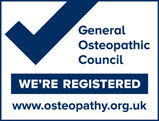30
Jul
2023
Dem Bones Dem Bones
As osteopaths, Alan Nevies and his colleagues at northlondonosteopaths are very busy with bones (and muscles too!). An article in the Daily Telegraph,24/7/23, shared practical suggestions from Professor Kate Ward, Professor of Global Musculoskeletal Health at University of Southampton on how to keep your bones strong and healthy as you age.
- Get moving in midlife. Bone is a dynamic, living tissue that is constantly repairing and replacing itself. High impact exercise including running, jumping, and skipping is best for stimulating bone growth but can be hard on tendons and joints. Moderate paced walking helps slow bone loss in a more safe and gentle way. People with osteoporosis should not stop exercising but take advice from the Royal Osteoporosis Society on how best to exercise.
- Resist! Resistance training (including weights, press ups and Pilates) helps maintain muscle mass and increases bone density.
- M &M’s (not the sweets) Mackerel and Milk. The omega-3 fatty acids and monounsaturated fats found in olive oil, nuts and seeds are also key to bone health. Good sources include yogurt, cheese, milk, oily fish with bones, dairy milk, eggs, fortified bread, and cereals.
- Watch your weight. Goldilocks style not underweight, not overweight but just in the middle. Being underweight is associated with low bone density and reduced muscle mass. Being overweight strains bones and joints, potentially leading to ankle or lower limb fractures. Any diet for weight loss should include the essential nutrients for bone health.
- Your gut instinct is right! There is increasing evidence that your gut microbiome influences your bone metabolism. A healthy microbiome can help you absorb more vitamins d and k. research suggests taking a probiotic and eating pro biotic yogurt may slow bone loss.
- Walk around the office. Sitting for prolonged periods is strongly linked to poor bone health, encouraging bone loss.
- Safe sun exposure. Vitamin d is good for your bones but that is not a license to burn!
- Hydration. At least 1.5 litres of water per day helps deliver nutrients to your bones. Fizzy drinks, (because of the acid may affect bone health negatively) caffeine and alcohol in moderation please.
Alan Nevies and his colleagues at northlondonosteopaths are happy to advise you on the right types of exercise that will benefit your bones. Northlondonosteopaths would agree with the other tips and we hope that they find their way in to everyone’s daily schedule.
[top]


